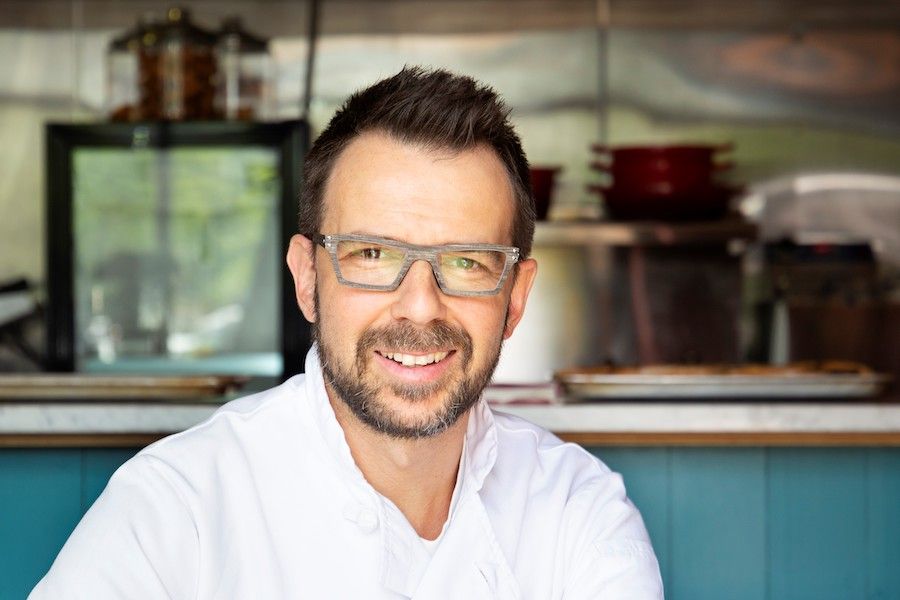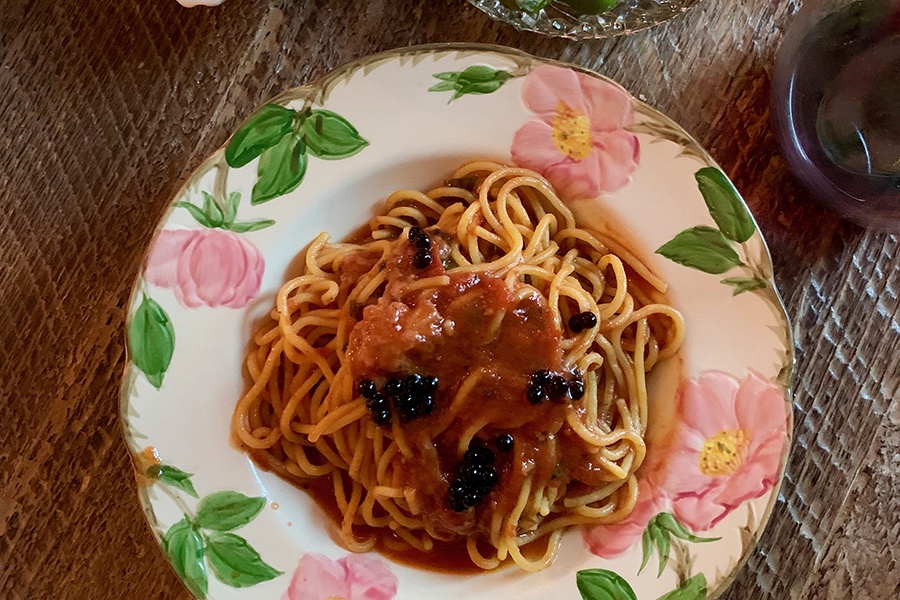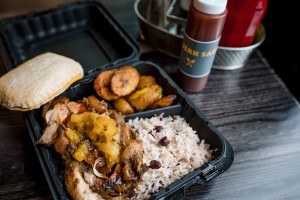Il Maestro Restaurant Will Bring “Artisanal” Italian Cuisine to Beacon Hill
Award-winning chef Ron Suhanosky will also turn his current Chestnut Hill restaurant, Chef Ronsky's, into a wine shop.

Meet “Il Maestro.” Chef Ron Suhanosky is prepping an Italian restaurant on Beacon Hill. / Photo provided
For the last three-and-a-half years, James Beard Award-winning chef Ron Suhanosky has been cooking for small crowds at a pint-sized spot in the suburbs. Now, he’s broadening his ambitions—and getting a much larger restaurant to match.
“When people think of Boston, I want them to think of Il Maestro,” says Suhanosky. That’s the name of the 125-seat project he’s orchestrating for the Beacon Hill address that formerly housed Lala Rokh, a long-running Persian restaurant that shuttered in 2018. When Il Maestro opens in September at 97 Mount Vernon St., guests will instead find the kind of Italian cuisine that has already earned Suhanosky plenty of praise: He previously owned the acclaimed Sfoglia restaurants, which had Nantucket and Manhattan locations, and also spawned Suhanosky’s first, Beard-nabbing cookbook, Pasta Sfoglia.
The chef has been comparatively low-key in recent years. In late 2016, Suhanosky opened Ronsky’s café at the Street, an outdoor retail development in Chestnut Hill; it was reimagined as Chef Ronsky’s, an intimate, 15-seat trattoria, last year. (In that form, it earned inclusion on our most recent list of the best local restaurants.) Now that Suhanosky is preparing to enter a fully tricked-out kitchen at Il Maestro, the small Chef Ronsky’s space will evolve yet again: In early May, it will transform into a wine shop called Ronsky’s Cantina. A single wooden table, which once belonged to Suhanosky’s great-grandmother, will remain behind for hosting private dinners.
Although April 11 will be the last opportunity to dine at Chef Ronsky’s in its current form, there’ll be many more seats waiting at Il Maestro. At that forthcoming, osteria-inspired restaurant, Suhanosky plans to divide the menu into “classic” and “artisanal” sections. Italian staples like puttanesca, carbonara, and cacio e pepe might appear under the former heading; the latter will highlight creative specialties, such as Suhanosky’s now-signature spaghetti with strawberry-tomato-balsamic sauce. Il Maestro’s wine list, which will echo the shop’s emphasis on careful curation, will be similarly divided: Expect an Italian-leaning lineup of chianti, Super Tuscans, and the like, as well as a collection of less-expected bottles from Portugal, France, and elsewhere.

Spaghetti with strawberries, a signature dish at Chef Ronsky’s, may make the move to Il Maestro. / Photo by Annie Lagasse
The interior will be distinctly segmented, too. Suhanosky says the front of the restaurant will feature a “lively, fast-paced dining bar” with views of the open kitchen—it’s somewhere for folks to grab a bowl of handmade pasta, or sip on cocktails that make ample use of amari or grappa. The proper dining room, meanwhile, draped with white tablecloths, will offer a more formal experience. And finally, a rear “family room,” lined with shelves bearing the chef’s favorite cookbooks, will have two farmhouse tables for entertaining festive groups. A glass-enclosed pasta-making room will be a centerpiece of Il Maestro’s design, and tables will be set with mismatched china—but the overall aesthetic will be “rustic chic,” according to Suhanosky, and draw inspiration from wine cellars as well as the retro style of 1940s Italy.
Compared to Chef Ronsky’s, this Beacon Hill venture will be a bigger, more robust expression of Suhanosky’s passions. “I really wanted to stake my claim in the heart of Boston,” says the chef, who cut his teeth under luminary toques like David Burke in NYC, Fabio Picci in Florence, and Lydia Shire here in the Hub. Now, Suhanosky wants to establish his own “institution” in a neighborhood where restaurants tend to enjoy fairly long lifespans. He knows that’s a bold declaration—but after a relatively restrained few years on the outskirts, where Suhanosky focused on reestablishing local roots, the chef is ready to really strut his stuff.
“With a name like Il Maestro, people are going to come in with a lot of expectations,” Suhanosky acknowledges. “I’m confident I’ll live up to them.”


